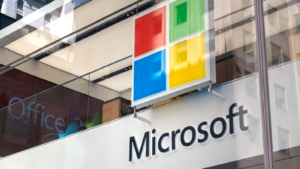It’s been a record year for companies hit by data breaches.
According to a November article from Nasdaq.com contributor Chris Morris, U.S. companies had reported 2,116 data breaches as of the end of September, 14% higher than the previous record of 1,862 in 2021. And that doesn’t include the final quarter of 2023.
“There are a handful of reasons for the rise in data compromises, ranging from the drastic uptick in Zero-Day attacks to a new wave of ransomware attacks as new ransomware groups enter the criminal identity marketplace,” said Eva Velasquez, president and CEO of the ITRC [The Identity Theft Resource Centre] in a statement.
Data breaches can be detrimental to a company’s share price. How long a stock remains affected depends on the seriousness in which a company deals with the data breach. A study by Centrify of 113 companies experiencing a data breach saw their share prices fall by an average of 5% after a breach was disclosed, CoolTechZone reported in 2021.
The study found that, on average, a company’s share price took 45 days to recover from the initial decline to the disclosure of a data breach.
While it’s serious business, these three stocks ought to do well in 2024 after suffering a data breach in 2023.
HCA Healthcare (HCA)

HCA Healthcare (NYSE:HCA) operates a healthcare network across America encompassing 183 hospitals, 317 urgent care centers, 142 freestanding emergency rooms, 148 ambulatory centers, and much more.
In the latest 12 months ended Sept. 30, HCA generated $63.2 billion in revenue and $9.3 billion in cash from operations, a compound annual growth rate of 7.5% over the past decade.
On July 10, 2023, the company reported a data security incident that included patient names, email, date of birth, and appointment-related information. According to CBS News, more than 11 million patients in 20 states were affected by the data breach.
“This appears to be a theft from an external storage location exclusively used to automate the formatting of email messages. There has been no disruption to the care and services HCA Healthcare provides to patients and communities. This incident has not caused any disruption to the day-to-day operations of HCA Healthcare,” the company stated in its July press release disclosing the data breach.
Over the next month, its shares lost more than 10%. Its share price recovered for a few days. HCA stock fell to a 52-week low of $215.96 in September and October.
However, they look ready to finish 2023 in positive territory, up more than 11%.
Of the 23 analysts that cover its stock, 18 rate it Overweight or Buy, with a $284 target price, 5% higher than its current share price.
T-Mobile US (TMUS)

T-Mobile US (NASDAQ:TMUS), America’s third-largest wireless carrier, had two data breaches in 2023.
The first was made public by the company in January. It involved data from 37 million prepaid and postpaid customer accounts. Analysts were not impressed.
“While these cybersecurity breaches may not be systemic in nature, their frequency of occurrence at T-Mobile is an alarming outlier relative to telecom peers,” Reuters reported comments from Moody’s Investors Service senior analyst Neil Mack.
“It could negatively impact customer behavior, cause churn to spike and potentially attract the scrutiny of the FCC and other regulators.”
Its shares didn’t move lower than 1% on the news.
In May, it reported a second data breach between Feb. 24 and Mar. 30, affecting approximately 836 customers. The information included names, contact information, account pins, social security numbers, etc. The company immediately reset all pins.
While small in customer numbers, this attack is troubling because the hackers could operate on T-Mobile’s network for more than a month without detection.
Despite the frequent data breaches, analysts still like its stock. Of the 27 covering TMUS, 24 rate it Overweight or Buy, with a $178 target price, 13% higher than where it’s currently trading.
With its earnings per share expected to grow by 41% in 2024 to $10.03, it’s easy to see why they like it.
Microsoft (MSFT)

You will have security issues when you’re as big a company as Microsoft (NASDAQ:MSFT). There’s no way around it.
In July, Microsoft revealed that Storm-0558, a group believed to be backed by the Chinese government, gained access to email accounts for 25 organizations, including government agencies in the U.S. and Western Europe. The breach included 60,000 unclassified emails from the U.S. State Department.
I’m the last person you want to ask about cyber security. However, given how many email messages Outlook sends, 60,000 doesn’t seem massive. That said, I’m not trying to downplay the seriousness of the incident. Microsoft stated in its July 11 blog:
“They did this by using forged authentication tokens to access user email using an acquired Microsoft account (MSA) consumer signing key.”
A nearly $3 trillion company would have better defenses against this type of thing happening. If anything, I’d be more concerned about smaller cloud-based companies.
As the data breach was an embarrassment to Microsoft, I’m sure it is working hard to avoid future egg-on-the-face situations.
Despite the data breach, Microsoft remains a most-own stock in 2024 and beyond.
On the date of publication, Will Ashworth did not have (either directly or indirectly) any positions in the securities mentioned in this article. The opinions expressed in this article are those of the writer, subject to the InvestorPlace.com Publishing Guidelines.

